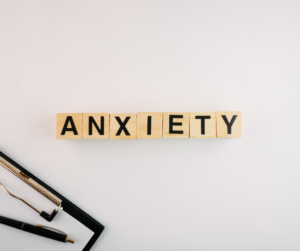Anxiety is a common yet complex mental health condition that affects millions of people worldwide. In this article, we will delve into the meaning of anxiety, exploring its causes, symptoms, and effective management strategies. By gaining a deeper understanding of anxiety, individuals can learn to navigate its challenges and live fulfilling lives.
What is Anxiety?
Anxiety is a natural response to stress or perceived threats, characterized by feelings of worry, fear, and unease. While occasional anxiety is a normal part of life, persistent or excessive anxiety that interferes with daily functioning may indicate an anxiety disorder. These disorders encompass a range of conditions, including generalized anxiety disorder (GAD), panic disorder, social anxiety disorder, and specific phobias.

Understanding the Symptoms of Anxiety:
- Physical Symptoms: Anxiety can manifest physically, leading to symptoms such as rapid heartbeat, chest tightness, shortness of breath, trembling or shaking, sweating, gastrointestinal distress, and muscle tension.
- Cognitive Symptoms: Individuals with anxiety may experience persistent negative thoughts, excessive worry, difficulty concentrating, indecisiveness, and irrational fears.
- Emotional Symptoms: Anxiety often elicits intense emotions, including feelings of apprehension, dread, irritability, restlessness, and a sense of impending doom.
- Behavioral Symptoms: Anxiety can influence behavior, leading to avoidance of certain situations or activities, seeking reassurance from others, compulsive behaviors, and difficulty sleeping.
Causes of Anxiety:
- Genetic Factors: Research suggests that genetics play a role in the development of anxiety disorders, with individuals having a family history of anxiety being at higher risk.
- Brain Chemistry: Imbalances in neurotransmitters, such as serotonin, dopamine, and norepinephrine, can contribute to the onset of anxiety symptoms.
- Environmental Factors: Stressful life events, trauma, chronic illness, substance abuse, and major life transitions can trigger or exacerbate anxiety symptoms.
- Personality Traits: Certain personality traits, such as perfectionism, pessimism, and neuroticism, may predispose individuals to anxiety disorders.
Managing Anxiety:
- Psychotherapy: Cognitive-behavioral therapy (CBT), exposure therapy, and other forms of psychotherapy can help individuals identify and challenge negative thought patterns, develop coping skills, and gradually confront feared situations.
- Hypnotherapy: Hypnosis can help individuals identify and reframe negative thought patterns that may be contributing to their anxiety. It can also help build confidence in the ability to manage anxiety, making it easier for individuals to manage stressful situations.
- Medication: Antidepressants, anti-anxiety medications, and beta-blockers may be prescribed to alleviate symptoms of anxiety and stabilize mood.
- Lifestyle Modifications: Engaging in regular exercise, practicing relaxation techniques (e.g., deep breathing, meditation), maintaining a balanced diet, getting adequate sleep, and avoiding substance use can help manage anxiety.
- Support Networks: Building a strong support system of friends, family members, support groups, and mental health professionals can provide invaluable emotional support and guidance.
Anxiety is a multifaceted condition that can have a profound impact on individuals’ lives. By understanding the meaning of anxiety, recognizing its symptoms, and implementing effective management strategies, individuals can navigate the challenges of anxiety and lead fulfilling lives.
Remember, seeking support from mental health professionals and building a strong support network are crucial steps in managing anxiety effectively.
Get a free copy of my program, The Power of Your Unconscious Mind,to better understand where anxiety comes from and how we can get rid of it.
